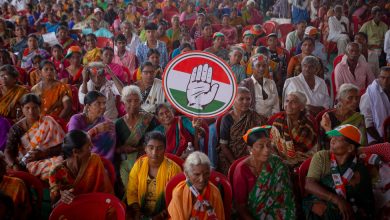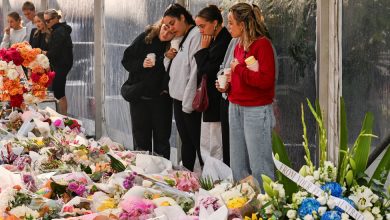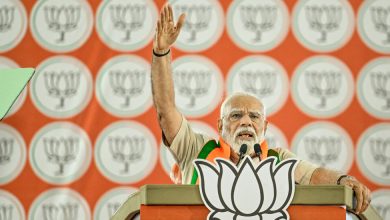Judge Orders a Delay in Australia’s Parliament House Rape Trial

MELBOURNE, Australia — The high-profile criminal trial of a man charged with sexually assaulting a government employee inside Australia’s Parliament House has been delayed after a judge ruled that a journalist’s public comments could prejudice jurors.
The government employee, Brittany Higgins, 27, shook the political establishment last year when she said in a televised prime-time interview that a colleague had assaulted her in the defense minister’s office while she was sleeping after a night of drinking. Her allegations prompted protests across Australia by women demanding changes in a male-dominated political culture in which sexual misconduct had long been tolerated — a reckoning which experts say contributed to the conservative government’s ousting in a federal election last month.
In August, the police charged Bruce Lehrmann, then 26, with one count of sexual intercourse without consent in the Higgins case. Mr. Lehrmann has pleaded not guilty and has maintained that no sexual activity took place during his encounter in 2019 with Ms. Higgins, who resigned from her government job before going public with her allegations.
The case has attracted intense media scrutiny and public commentary, including an apology from the prime minister at the time, Scott Morrison, for “the terrible things that took place.” All the attention has complicated the legal case against Mr. Lehrmann, because Australian courts are sensitive to anything outside the legal proceedings that could sway jurors or potential jurors.
Under Australia’s strict laws governing criminal prosecutions, once a person is charged, journalists are generally not allowed to publish information that could influence the opinions of jurors, like details of past criminal convictions. Judges often issue gag orders that temporarily restrict the publication of information related to criminal proceedings for the same reason. Some legal experts have said that such orders reflect a misplaced lack of faith in jurors’ ability to reach a fair conclusion without being influenced by media coverage.
On Tuesday, Lucy McCallum, the chief justice of the Supreme Court of the Australian Capital Territory, granted an application by Mr. Lehrmann’s lawyer to delay the trial, which had been scheduled to start on Monday, after the journalist’s remarks about Ms. Higgins over the weekend.
Lisa Wilkinson, the journalist who conducted the first televised interview with Ms. Higgins in 2021, on Sunday won a prestigious television award for the interview. In her acceptance speech, she praised Ms. Higgins for her courage.
The implicit premise of the speech, Chief Justice McCallum said, “was to celebrate the truthfulness of the story she exposed.” The chief justice added that commentary about Ms. Wilkinson’s award by two radio presenters and on social media assumed Mr. Lehrmann’s guilt. Ms. Wilkinson is expected to appear as a witness in the trial.
“Somewhere in this debate, the distinction between an untested allegation and the fact of guilt has been lost,” the chief justice said. She ruled that the trial should be delayed to allow the commentary to fade from memory and not influence the jury. She said that should happen by October.
This was the second time that Mr. Lehrmann’s legal team had sought to delay the trial over public commentary. In March, it applied for a similar order after arguing that Mr. Morrison’s apology in Parliament “disregarded the presumption of innocence.”
Mr. Morrison’s office subsequently said that the apology had referred broadly to “the many terrible experiences Ms. Higgins has detailed during her time working at Parliament House and the treatment that she has described receiving whilst working here.” Chief Justice McCallum refused that application.




